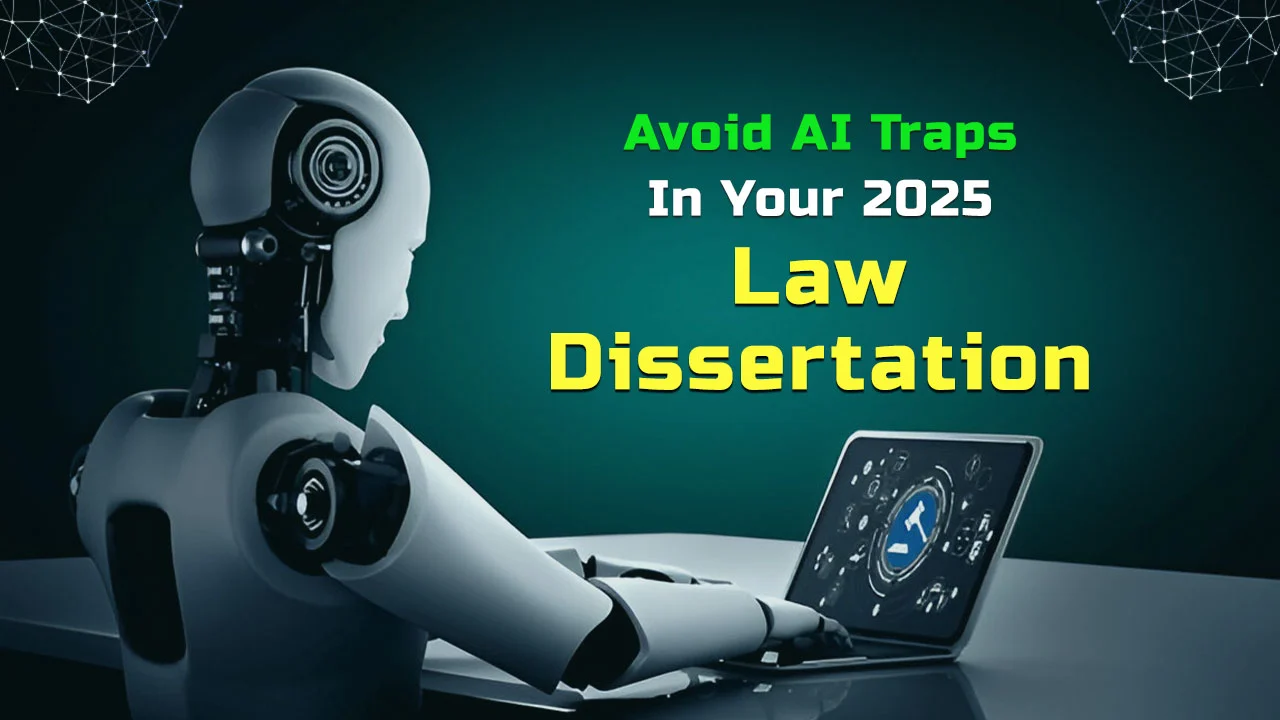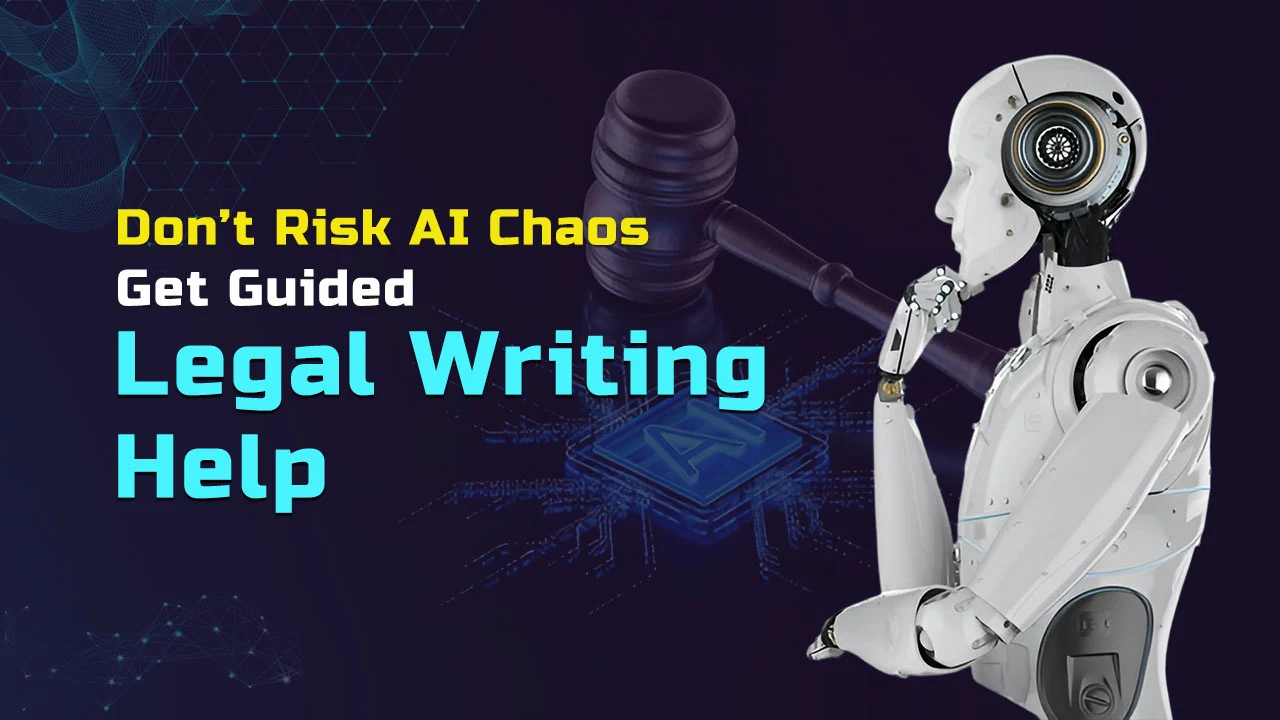

Introduction
Artificial intelligence has made astonishing leaps by 2025, propelling speedy solutions for everything from case citation to polished prose. That burst of convenience tempts many students to cede their own voice to an algorithm. A law dissertation, conversely, requires layer upon layer of critique, fresh interpretation, and precise grasp of statutes-capsules of reasoning that even the smartest machine still fumbles. Dissuasion comes not only from instinct; campuses now deploy erasure-hunter software and impose stiff penalties on work marked by the telltale trace of code. Credit, reputation, and a clear conscience rest on one simple choice: enlist experienced law assignment help support before shortcuts erode standing. Value scholarship; safeguard it with the wisdom of seasoned editors.

How AI Degrades the Standards of Legal Dissertations
1. AI's Limits in Legal Reasoning
Artificial intelligence has become surprisingly nimble at aggregating statutes and pulling up cases, yet it still lacks the fine-tuned intuition that legal scholarship demands. Crafting a law dissertation is not merely a matter of presenting raw data; it is an exercise in interpretation, persuasion, and layered argumentation. Genuine critical reasoning in the discipline hinges on weighing precedent, sensing the weight of context, and appreciating the subtleties that a line of code cannot value. An examiner reading work expects the unmistakable imprint of a human perspective, not the bland uniformity that excessive reliance on technology often churns out. Even seasoned students benefit from experienced law essay help who can probe their claims, push back on easy answers, and sharpen the analysis in real time.
2. AI Detection Tools are Getting Smart
Plagiarism detection software has gained new sophistication in 2025. The latest versions run on machine-learning engines that flag content even when it has been lightly rewritten by an automated assistant. University administrators now treat the tools as standard. Copying text straight from an AI prompt and pasting it into a law dissertation will almost certainly trigger a misconduct alert. Most scanners examine phrase frequency, syntactic rhythm, source mimicry, and nonce vocabulary that the programs themselves produce.
Any research project submitted to a faculty board must bear the genuine mark of the student who signs it. Automated prose is a compromise, not a shortcut. To write with integrity, scholars are urged to consult with law dissertation writing, librarians, or disciplinary mentors who understand the relevant conventions and can guide revisions without diluting personal accountability.
3. Jurisdictional Nuance Exceeds Artificial Cognition
Law is anything but uniform. Statutes that make perfect sense in one country can appear obsolete the day they are in another. Dissertation committees expect, and sometimes demand, that every principle be anchored in the precise legal landscape from which it derives. Generalised answers from a chatbot-or worse, outright mistakes-may creep into the draft before notice, and by then, the damage is done; late citations become permanent scars on a manuscript. A law assignment helper or practitioner knows where the slippery regional edges are and can point them out before committing ink to paper.
4. Generic Content Undermines Originality
Relying heavily on AI text-generators can flatten the voice of a dissertation until it sounds oddly interchangeable with hundreds of others. That software ingests a world of source material yet rarely conjures a fresh syntactical twist or spark of intellectual mischief. Committees prize work that dares to inhabit seldom-explored doctrinal corners or that anchors broad theories in agonisingly specific case files. The moment multiple authors prompt the same platform in the same disciplined way, distinctiveness shrivels and symmetry runs rampant. The aesthetic and psychological toll of that redundancy stretches beyond a single grade; it risks sapping an entire project of its memorable pulse. A reputable and trusted help writing law dissertation standing beside the candidate, however briefly, can prod the still-embryonic argument into an unpredictable, gratifying life of its own.
5. AI Misses Academic Voice and Argument Flow
The qualifying dissertation in law is recognisable by its consistent academic voice and a narrative that advances without jolts or gaps. A machine-generated draft, however, frequently dashes from one statement to the next, leaving whole paragraphs unlinked. That erratic transition can turn an otherwise promising project into a reading ordeal, one that a faculty board is unlikely to overlook. Human editors know when tone wanders and pacing stalls, and they intervene to anchor the text. With them, outlining becomes a roadmap, and each section acquires the polish required for print. No program, however sophisticated, still offers that final guarantee of clarity and persuasion.
6. Citations and Sources Demand Expert Scrutiny
In law-abiding prose, every reference must land with pinpoint accuracy. Citation style, paper format, and the pedigree of the source play central roles. Automated systems, while convenient, often churn out links that are politically stale, typographically crooked, or made up out of thin air. A fabricated decision or a half-quoted statute can sink an article faster than a judge can bang a gavel. A seasoned editor from law coursework help checks each cite against its original text and formats it to OSCOLA, Bluebook, Harvard, or whatever grammar applies. The same scholar weighs the source's pedigree, betting argument on first-rate precedent rather than on an urban legend. Relying on an off-the-shelf algorithm in this domain amounts to tip-toeing across an exposed legal plank: thrilling, pointless, and safer if borrow a harness.
7. Time Management and Stress Reduction
The task of composing a law dissertation often arrives at the intersection of coursework, clerkships, and ordinary adult life. No chatbot, however sophisticated, can relieve the sheer burden of alignment, revision, and deadline calculation that weighs on a writer. Seasoned academic coaches offer more than proofreading; they mentor students in the art of staged drafting and incremental deadline-setting. Handing over structural decisions to such experts allows to concentrate on analysis rather than damage control. The result is clearer thinking, calmer breathing, and a finished document that meets exacting standards-in other words, an achievable balance the latest algorithm cannot promise.
7. Your Dissertation Reflects Future Legal Career
Most law graduates soon learn that a long thesis-maybe the longest paper they will ever write-is not merely coursework, only a few credits shy of the bar. The document quietly brands them in the legal community, for better or worse. Authorship requires deep research and fresh thought, two qualities a computer cannot fake even if it spits out pages at dazzling speed. Yardstick after yardstick, judges, chambers, firms, and graduate programs sniff authenticity from the first paragraph. When a candidate leans too heavily on chatbots, short-cut prose bodies the record and quietly erodes other opportunities-clerkships, an L.L.M. admission, maybe even that initial associate offer. Expert editors, however, push students past the algorithmic comfort zone and into work they can brag about a decade later. There's no substitute for scrutiny from someone who expects the phrasing to survive a court's test of time. A single dissertation may easily become the first sentence on a biography page and the last page a recruiter scans.

Read also: Why Law Coursework Services Save Busy Students
Conclusion
By 2025, chat-driven tools will guide citations, trim typos, and outline ideas, yet none of them will understand what original expertise feels like from the inside. Conceding the entire project to code is an open invitation to flat accuracy, limp originality, and-even worse, implicit confession that the writer won't defend a claim face-to-face with a live examiner. Colleges and chambers read minute details; in-house counsel sometimes give applicants two hours, not two days, to blow the dust off a brief and pound out solutions in real time. Someone who has withheld sweat from the thesis usually disappears as abruptly as that time limit. Investing in a seasoned legal mentor still costs less than forfeiting an entire career for the sake of ten easy pages. The files can feel rote, the hours interminable, yet the future remains worth every frustrating stroke of the keyboard.

Sophie Whitmore
This makes a compelling case for academic integrity. Law dissertations must reflect authentic thinking—AI just can not replicate that. Excellent reminder for students.
James Ellison
Spot on! AI lacks the nuance legal writing demands. You can’t outsource critical thinking, especially when your future credibility’s on the line.
Isla Cartwright
Well said. Originality matters more than ever in 2025. We mustn’t let machines flatten our academic voice. Support is essential.